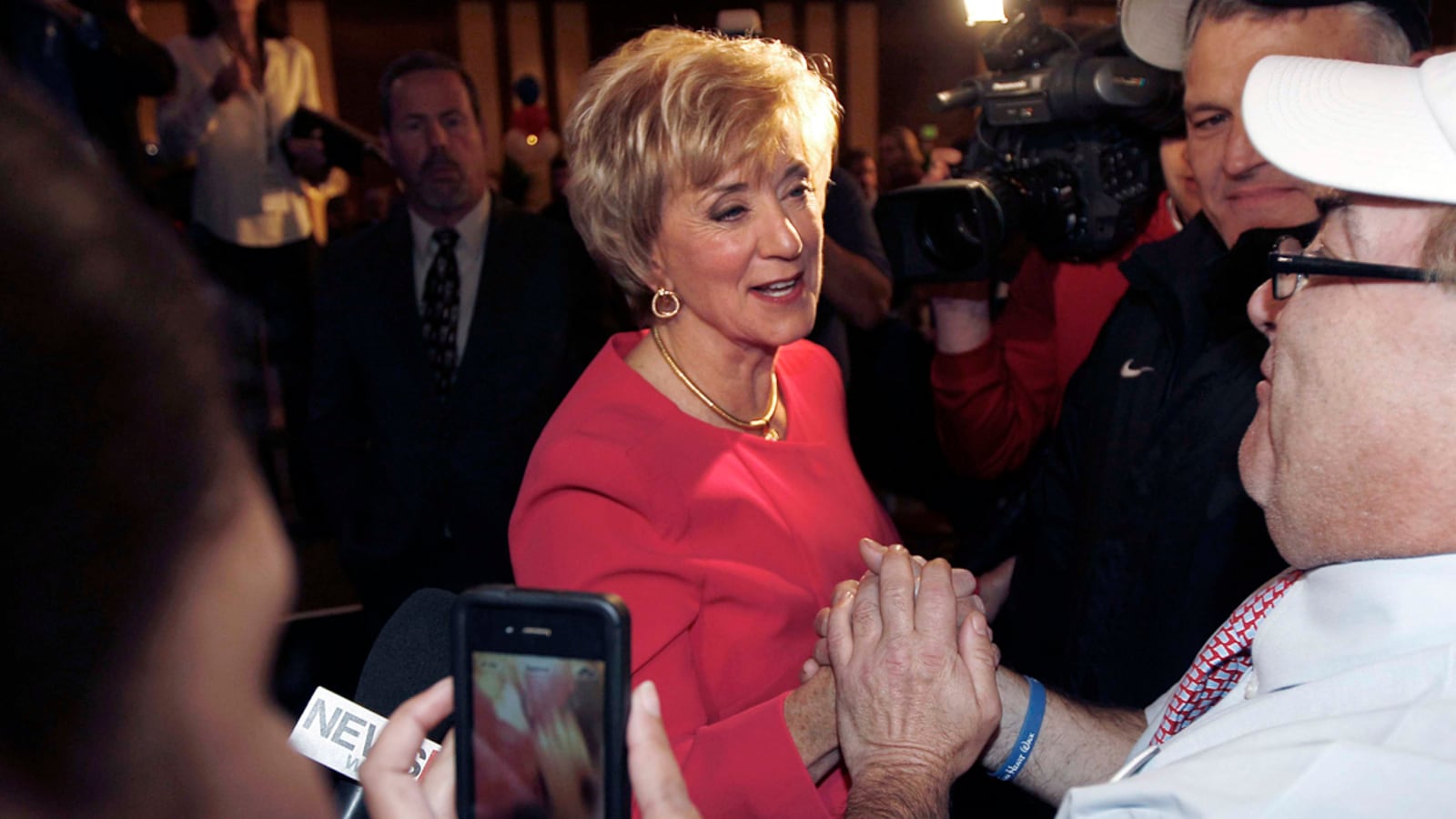Can Americans be bought? That was one of the key questions this election cycle, as unprecedented amounts of money—some $6 billion—was spent on races around the country, according to the Center for Responsive Politics. Spending on House and Senate races alone reached about $1.82 billion, edging up from the $1.81 billion candidates shelled out in 2010.

The contest where the candidates spent the most, excluding the presidential race, was the Massachusetts matchup between Republican Sen. Scott Brown and Democratic candidate Elizabeth Warren. Harvard law professor Brown fought to snatch a seat out from underneath the conservative incumbent, whose special-election win in the deep-blue state nearly derailed Obamacare. After the pickup-truck-driving Brown ascended to the national stage with his 2010 upset, Warren was tapped by Democrats to woo back voters.
At a rally on Monday in West Roxbury, Warren said that if her campaign succeeded, it would be due to the efforts of her supporters. “This is what it comes down to, all the hard work,” Warren said. “Out here I see people who have been at this for more than a year now. We’ve made phone calls. We’ve held signs. We’ve knocked on doors.”
But past people power, Warren, who took some credit for inspiring Occupy, also burned through $13 million between the middle of August and the end of September, while Brown spent about $9 million over the same stretch.
With 37 percent of the vote in, CNN called the race for Warren on Tuesday night, 52-48.
Among the candidates who might have learned the hard way Tuesday that Americans can resist a typhoon of cash is Linda McMahon, the Connecticut Senate candidate who made her fortune building the WWE with her husband, Vince McMahon. A resident of Greenwich, where she resides in an $11 million abode, she spent close to $100 million of her own money in the last three years on what is now two ill-fated bids for a Senate seat.
In her pricey campaign ads, McMahon defended her use of her own cash—more of her own money than any other American in history on a campaign for a federal seat (though far less than Mayor Michael Bloomberg of New York has paid out in his three successful runs for the office). “In the Senate, I will owe you, not the special interests who corrupt so many careers politicians from Hartford to Washington,” McMahon said—but Connecticut voters weren’t buying her pitch. McMahon spent at least $42.6 million on her latest try—and the nearly $50 million she spent in 2010 had already bought her widespread name recognition, albeit some of it negative—but Tuesday the AP called the race for Joe Lieberman’s seat in favor of McMahon’s opponent, Rep. Chris Murphy, who'd led in the polls throughout their contest.
Elsewhere, outside cash may have served only to harden voters' partisan allegiances. A closely contested Senate race between former Virginia governors Tim Kaine and George Allen was another of the country’s biggest cash sucks, as the two sought to sway voters in a truly purple state. The two spent in excess of $25 million combined, as Republican Allen and Democrat Kaine fought and clawed for every vote as they went after retiring Democratic Sen. James Webb’s spot.
Including spending by outside groups, the Kaine-Allen matchup was the most expensive congressional race in the country. Outside groups spent more than $50 million, bringing the grand total for the race north of $80 million. Apart from the high profile of the candidates themselves in the Virginia race, it was a magnet for outside groups because of its key role in determining who seized power in the Senate. (And, of course, there's a case to be made that the high profiles should have limited spending, since neither candidate needed to purchase name recognition.)
Republican groups spent more than $24 million going after Kaine, while far less—$15 million—was leveled against Allen by outside groups. More than $10 million of the conservative money aimed at Kaine came from Karl Rove’s Crossroads GPS.
Kaine pulled out a narrow victory by about two points, with Allen conceding late Tuesday.
Whether candidates and political operatives will rethink campaign spending and whether big bucks equal votes may be among the biggest questions to emerge from this election cycle. American companies have learned the hard way that pouring cash into political candidates in the hopes of big returns just does not always pan out the way one would hope. According to a study conducted by researchers at the University of Minnesota and the University of Kansas, companies that gave to political groups between 1991 and 2004 actually showed more sluggish growth than similar companies that did not give.
Perhaps the last word here should go to @OccupyWallStNYC: "So, Obama is president, the dems control senate and the gop controls house. $2 billion and 2 years of campaigning really made a difference!!"





